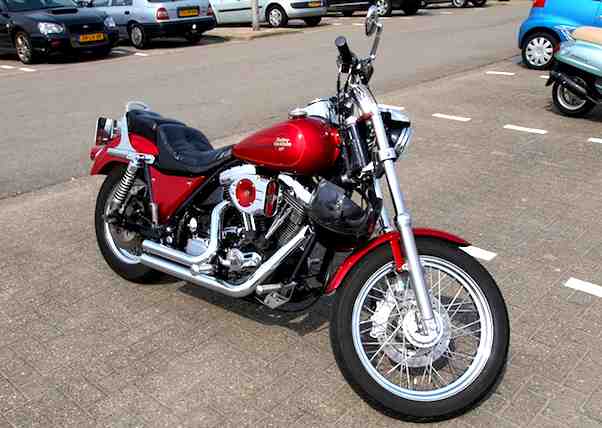
Harley-Davidson’s success is partly built on the effectiveness of its corporate social responsibility (CSR) strategies for addressing stakeholders’ needs and interests. Based on Archie Carroll’s theory of corporate social responsibility, stakeholders are individuals or groups that affect and are affected by the motorcycle business. Corporate citizenship, sustainability, and business ethics influence customer perception about the company’s brand and products, and the effectiveness of the business competencies shown in the SWOT analysis of Harley-Davidson. Stakeholders’ interests serve as a reflection of the motorcycle company’s target customers’ concerns. Through appropriate corporate social responsibility programs, Harley-Davidson satisfies its stakeholders’ interests. In turn, these stakeholders provide adequate support to ensure the company’s resilience and competitiveness.
Based on corporate social responsibility (CSR) theory, this analysis of stakeholders and corporate citizenship programs shows the company’s contributions to community development and customer mobility, which is a goal linked to Harley-Davidson’s mission statement and vision statement. Harley-Davidson’s CSR programs satisfy stakeholders’ interests regarding sustainability, human resource management, community support, and green business ethics.
Harley-Davidson’s Stakeholder Groups, CSR & ESG Initiatives
Based on issues facing the motorcycle industry, Harley-Davidson’s corporate social responsibility programs target specific interests of stakeholders. Harley-Davidson’s CSR and ESG programs prioritize stakeholder groups as follows, arranged according to significance:
- Customers (top-priority stakeholders)
- Communities
- Environmentalists
- Suppliers
- Employees
Customers. Harley-Davidson gives top priority to its customers as a major stakeholder group. The company’s corporate social responsibility programs are focused on ensuring that these stakeholders’ interests and expectations on quality, design, and craftsmanship are met. Customers are significant stakeholders because they directly determine Harley-Davidson’s sales revenues and profitability. This influence leads the company to implement corporate social responsibility strategies and programs that satisfy customers’ interests. Harley-Davidson uses its dealerships to obtain feedback from bikers about their preferences and experiences. Such information is used in designing H-D motorcycles.
Communities. This stakeholder group is interested in Harley-Davidson’s contributions to community development. Communities are significant stakeholders because they affect the company’s reputation and brand image. The company’s corporate social responsibility programs aim to support these interests about community development. For example, the Harley-Davidson Foundation works with charitable organizations for goals in improving education and health. In addition, the company’s Supplier Diversity policy supports minority-owned and female-owned suppliers. Corporate citizenship programs for this stakeholder group of communities are typically communicated as public relations in Harley-Davidson’s marketing mix (4Ps).
Environmentalists. Harley-Davidson has become increasingly sensitive toward the interests of environmentalists as a stakeholder group. These stakeholders are significant because they push businesses to contribute to environmental protection and conservation. Many of this group’s corporate citizenship concerns for green business represent the ecological trends shown in the PESTLE/PESTEL analysis of Harley-Davidson. The Harley-Davidson Foundation partly addresses these interests. For example, the Foundation gives financial support to charitable organizations that have environmental conservation programs. As part of its corporate social responsibility efforts, the motorcycle company also has a sustainability strategy involving partnerships with organizations, like The Nature Conservancy, to support environmental conservation. Moreover, Harley-Davidson implements new technologies to ensure optimal efficiency and to minimize the environmental impact of its business.
Suppliers. Harley-Davidson’s suppliers are significant stakeholders that influence the company’s production capacity and corporate social responsibility programs. This stakeholder group determines the availability of materials that the company uses to manufacture its motorcycles. The interests of suppliers include continued and stable partnership with Harley-Davidson. The company addresses these stakeholders’ interests to ensure business resilience and adequate production capacity. For example, Harley-Davidson’s Supplier Diversity policy includes maximizing support for a wide variety of suppliers instead of focusing on just a few big ones. In this corporate social responsibility strategy, small community-based suppliers benefit through partnerships with the motorcycle company. Furthermore, Harley-Davidson’s operations management contributes to corporate citizenship by providing support for suppliers through streamlined supply chain management.
Employees. Employees are significant stakeholders because they influence Harley-Davidson’s output quality and capacity. The interests of this stakeholder group include fair treatment and career opportunities. The motorcycle manufacturer’s corporate social responsibility strategy addresses these interests through employment policies and programs based on the company’s core values (e.g., Respect the Individual, Encourage Intellectual Curiosity) and expected behaviors (e.g., teamwork, creativity, and diversity). These values and behaviors are linked to Harley-Davidson’s company culture (corporate culture). The Harley-Davidson Foundation also promotes employee involvement in outreach programs to improve employee morale.
Harley-Davidson’s CSR & ESG Performance in Addressing Stakeholders’ Interests
Harley-Davidson’s business resilience is partly based on the success of its corporate social responsibility (CSR) strategy and programs. The company understands the importance of stakeholders and their impact on the business. For example, Harley-Davidson’s Supplier Diversity Policy helps promote the inclusive development of communities. The company also prioritizes the interests of customers as a major stakeholder group. This prioritization enables the firm to effectively satisfy the preferences and expectations of its target market, leading to strengths against competitors, including Ducati, BMW, Honda, Yamaha, and other motorcycle manufacturers. Harley-Davidson’s CSR and ESG programs are satisfactory in addressing stakeholders’ interests and supporting long-term business success.
References
- Ahmadi, A., & Amara, T. (2024). ESG Performance in Relationship with the Board of Directors, Sustainability Incentives, and CSR. In Sustainable Investments in Green Finance (pp. 188-194). IGI Global.
- Harley-Davidson Foundation.
- Harley-Davidson, Inc. – Corporate Governance.
- Harley-Davidson, Inc. – Form 10-K.
- Lew, G., Życzyński, N., Olejarz, T., & Pomykała, M. (2024). The importance of CSR and ESG in shaping competitive and image advantage of enterprises. European Research Studies, 27(3), 308-323.